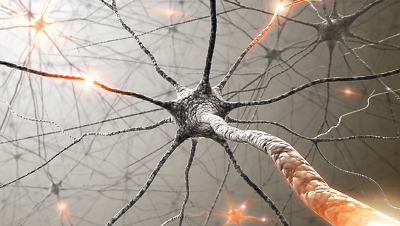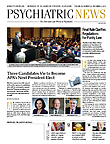For some time, there has been reason to believe that the brainstem might play a role in late-life depression. Now, Robert Wilson, Ph.D., a professor of neurological sciences and behavioral sciences at Rush University Medical Center, and his colleagues have tested the hypothesis. And as they reported online October 16 in JAMA Psychiatry, dopaminergic neurons in the ventral tegmental area of the brainstem seem to be implicated in development of late-life depression.
The study sample consisted of 124 older individuals from a parent study called the Rush Memory and Aging Project.
These individuals had undergone extensive annual clinical evaluations that included a structured medical history, a neurological examination, and neuropsychological tests. None of the subjects was diagnosed with dementia on the basis of these evaluations. During each annual evaluation, these individuals were also tested for depression with the Center for Epidemiological Studies Depression Scale. The cohort lived on average five years after entry into the study, and their depression scores over these years were averaged.
After the subjects died, their brains were autopsied. The researchers then used the subjects’ depression evaluation material and brain autopsy material to see whether there were any links between late-life depression and four brainstem areas—the dorsal raphe nucleus, the locus ceruleus, the substantia nigra, and the ventral tegmental area.
Specifically, they measured dopamine neurons in the substantia nigra and in the ventral tegmental area. A lower density of dopamine neurons in each nucleus was related to a higher level of depressive symptoms when each nucleus was modeled separately. In contrast, when the two nuclei were modeled together, the effect for the substantia nigra was no longer significant, but the effect for the ventral tegmental area remained so. As for the locus ceruleus, the researchers measured noradrenergic (not dopaminergic) neurons, and for the dorsal raphe nucleus, the researchers measured serotonergic (not dopaminergic) neurons. Neither of these neuron measures was related to depressive symptoms.
Thus it appeared that the dopamine system in the ventral tegmental area of the brainstem might play an important role in late-life depression, Wilson and colleagues concluded.
The results have clinical implications, Wilson said in an interview with Psychiatric News. “Late-life depression is common and often resistant to therapy. These findings suggest that pharmacologic enhancement of dopamine transmission may be helpful in some cases.”
The research was funded by the National Institutes of Health and the Illinois Department of Public Health. ■

